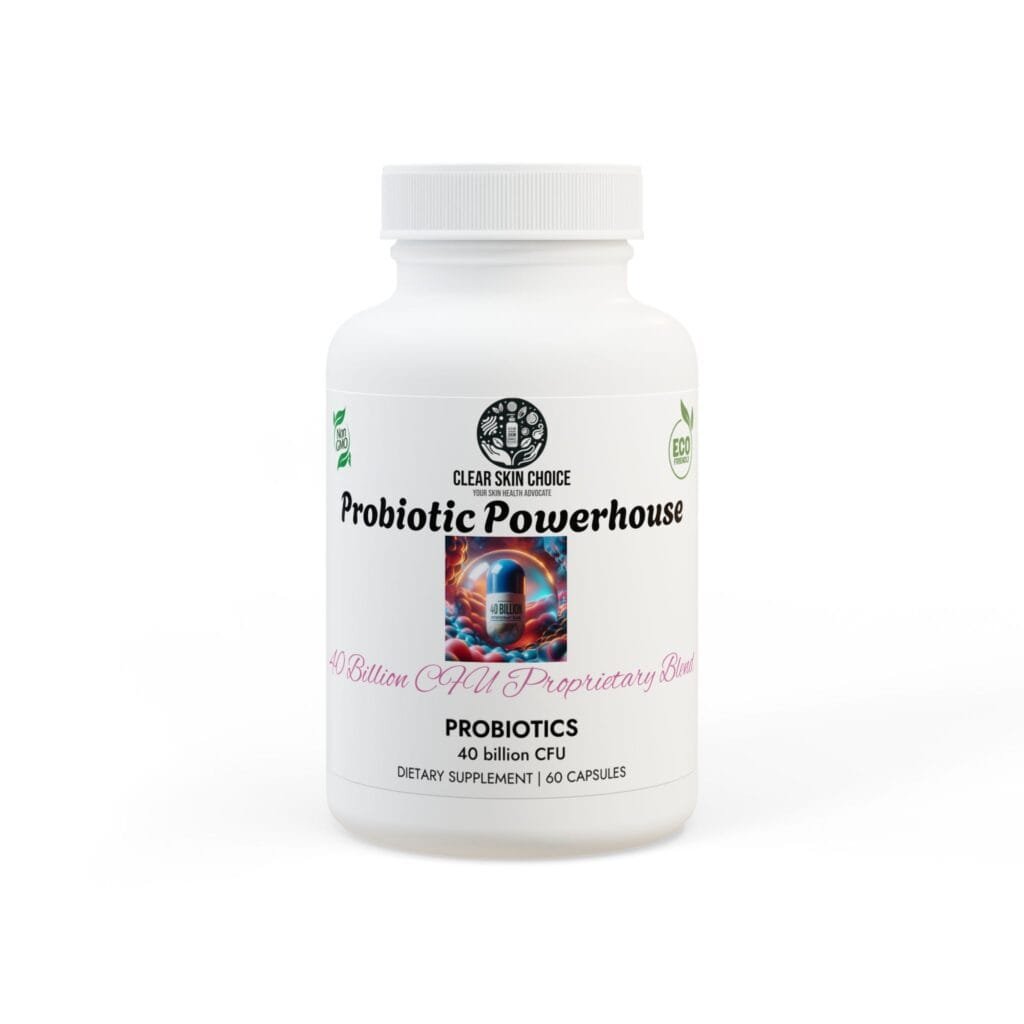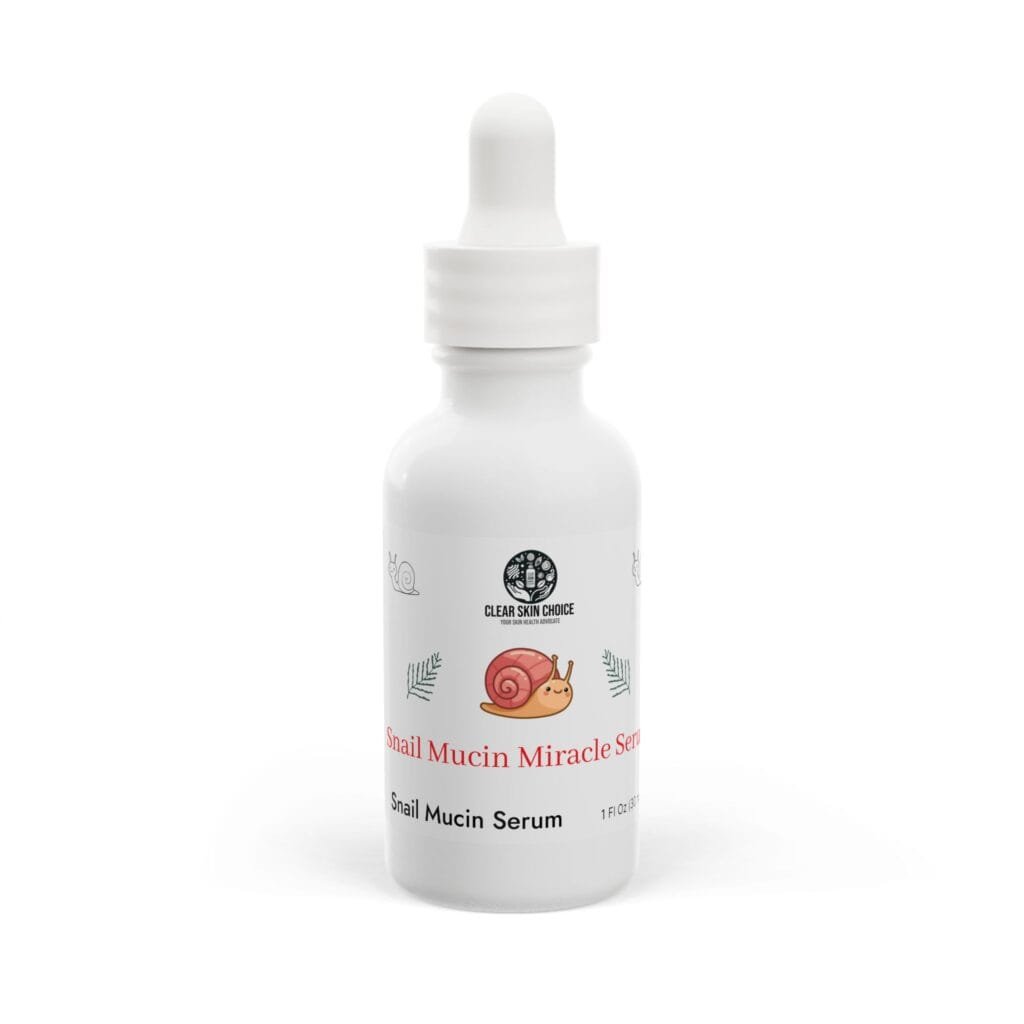Healthy gut-healthy skin
Table of Contents
Introduction to the Gut-Skin Axis
The gut-skin axis represents a complex interaction between the gastrointestinal system and the skin’s health. Recent research has illuminated how gut microbiota, the diverse community of microorganisms residing in our intestines, can influence various skin conditions, including
The human gut microbiome plays a crucial role in maintaining overall health, affecting immune responses and inflammation levels. The health of this microbiota is influenced by diet, lifestyle, and environmental factors. An imbalance, known as dysbiosis, can lead to increased intestinal permeability or leaky gut, allowing harmful substances to enter the bloodstream, which may trigger systemic inflammation and skin conditions like
What is the gut skin axis?
Gut health is increasingly being recognized as a vital contributor to skin conditions. The skin is the largest organ of the body and acts as a barrier against environmental aggressors. When the gut microbiome is compromised, it can lead to an inflammatory cascade that manifests on the skin. Various studies have shown a significant correlation between gut health and the severity of
Moreover, a healthy gut microbiome aids in the production of beneficial metabolites, which can help modulate immune responses and maintain skin barrier integrity. These metabolites include short-chain fatty acids (SCFAs), which are produced during the fermentation of dietary fibers. SCFAs contribute to anti-inflammatory processes, suggesting that a balanced gut microbiome may be key to managing
Dysbiosis and Its Impact on Eczema
What is Dysbiosis?
Dysbiosis refers to an imbalance in the gut microbiome composition, often characterized by a reduction in the diversity of beneficial bacteria and an overgrowth of harmful species. This condition can arise from various factors, including poor diet, antibiotic use, stress, and environmental toxins. Dysbiosis can lead to increased gut permeability, allowing allergens and toxins to enter the bloodstream, triggering inflammatory responses.
Research indicates that individuals with
How Dysbiosis Worsens Inflammatory Skin Disorders
When dysbiosis occurs, the immune system may become dysregulated. This can result in an overactive immune response to common environmental triggers, leading to inflammation not only in the gut but also in the skin. The skin, being a reflection of internal health, may show signs of this inflammation, resulting in flare-ups of
Moreover, dysbiosis can impair the production of critical metabolites that help maintain skin barrier function. A compromised skin barrier can lead to increased transepidermal water loss and susceptibility to irritants and allergens, perpetuating the cycle of

Gut-Derived Metabolites and Inflammatory Pathways
The Influence of Metabolites on Skin Health
Gut-derived metabolites, particularly SCFAs, play a vital role in regulating inflammation and maintaining skin health. These metabolites are produced when gut bacteria ferment dietary fibers, and they exert various beneficial effects on both the immune system and skin barrier function. For instance, butyrate, a type of SCFA, has been shown to have anti-inflammatory properties that can help reduce skin inflammation associated with
Additionally, SCFAs contribute to the health of the intestinal lining, strengthening the gut barrier and decreasing permeability. A healthy gut lining minimizes the likelihood of harmful substances entering the bloodstream, which in turn can reduce systemic inflammation and its impact on skin disorders. Thus, the interplay between gut-derived metabolites and skin health underscores the necessity for a balanced gut microbiome.
Skin Barrier Integrity and Gut Health
The skin barrier is crucial for protecting against environmental irritants and retaining moisture. A healthy gut microbiome supports the skin barrier by producing metabolites that enhance its integrity. Conversely, dysbiosis can weaken the skin barrier, making it more susceptible to external irritants and exacerbating conditions like
Maintaining skin barrier integrity is essential for managing
Dietary Interventions for Eczema

Probiotic Powerhouse Supplement
Probiotic Powerhouse Skin Formula – Not only for your gut health but your skin!
Prebiotics and Probiotics for Skin Health
Dietary interventions play a significant role in managing
Numerous studies suggest that supplementation with probiotics may alleviate
Specific Diets to Improve Eczema Symptoms

The Autoimmune Reset
The Autoimmune Reset offers holistic therapies including lifestyle, diet, topical herbal, and botanical treatments. Instead of approaching therapy in a reactive manner, this book gives you solid strategies to arrest and improve conditions.
gut microbiome and diet implications
In addition to prebiotics and probiotics, certain dietary patterns may further benefit individuals with
Another promising dietary intervention is the incorporation of omega-3 fatty acids, found in fatty fish, flaxseeds, and walnuts. Omega-3s possess anti-inflammatory properties and have been linked to improved skin conditions. By adopting specific dietary strategies, individuals with
Targeted Nutritional Strategies
Implementing a Gut-Friendly Diet
Implementing a gut-friendly diet involves a thoughtful approach to food choices. Focus on including a variety of fiber-rich foods, such as fruits, vegetables, legumes, and whole grains, which can serve as fuel for beneficial gut bacteria. Additionally, incorporating fermented foods can introduce live probiotics that support gut health. Foods like yogurt, kombucha, and sauerkraut can be excellent additions.
It is also important to minimize the intake of processed foods, refined sugars, and unhealthy fats, which can negatively impact gut microbiota diversity. Awareness of potential food intolerances is crucial as well; keeping a food diary can help identify any correlations between specific foods and
Monitoring and Adjusting Dietary Choices
Monitoring dietary choices and their effects on
Adjustments to dietary strategies may be required over time. As the gut microbiome is dynamic and can change with dietary modifications, ongoing evaluation and adaptation of dietary choices can help maintain a healthy gut-skin axis and optimize skin health.
Conclusion
Recap of the Gut-Skin Connection
The connection between gut health and
Future Research Directions in Gut Health and Eczema
While current research provides valuable insights into the gut-skin relationship, further studies are needed to deepen our understanding. Future research could explore the specific mechanisms by which gut-derived metabolites influence skin health and the potential for personalized dietary interventions in
Recent research has highlighted the intricate relationship between gut health and skin conditions, known as the gut-skin axis. Dysbiosis in the gut microbiota has been linked to various dermatological issues, including acne, psoriasis, and atopic dermatitis (Verma et al., 2024; Sinha et al., 2021).
The mechanisms underlying this connection involve immune system modulation, inflammatory pathways, and metabolic byproducts produced by gut microbes (Verma et al., 2024). The gut microbiota’s influence extends to hormone production and modulation, which can significantly impact skin health (Maguire & Maguire, 2020). Therapeutic approaches targeting the gut-skin axis include probiotics, prebiotics, and dietary interventions to restore gut microbiota balance and improve skin health (Verma et al., 2024; Sinha et al., 2021). Understanding the gut-skin axis offers promising avenues for novel dermatological treatments and underscores the importance of holistic approaches in managing skin disorders (O’Neill et al., 2016; Verma et al., 2024).








